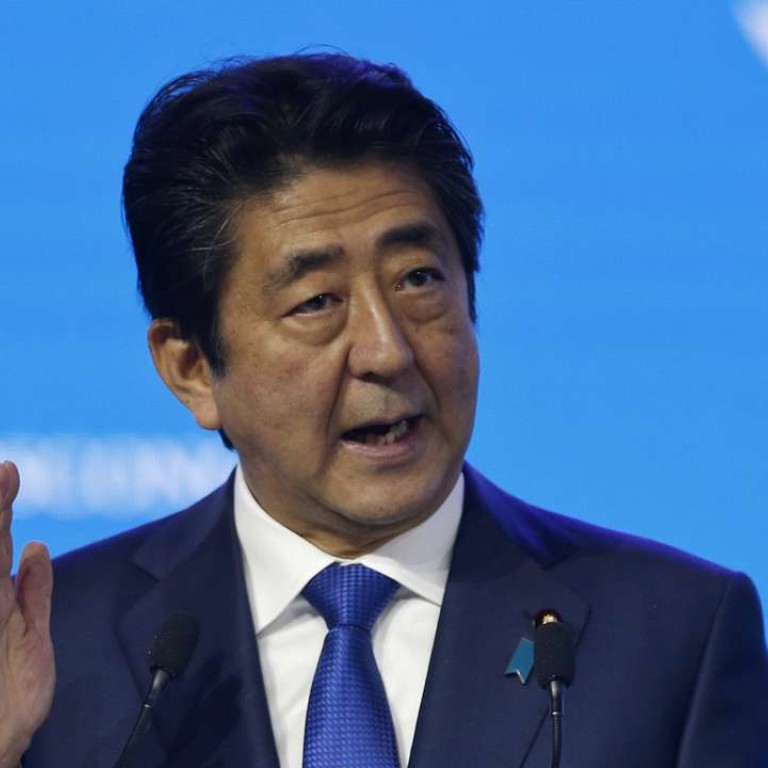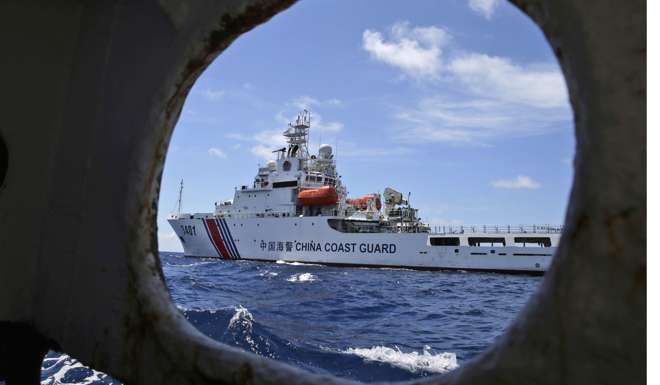
China seeks to curb Japanese criticism over maritime issues at talks on sidelines of G20 in Hangzhou
China has told Japan it will not accept “excessive” criticism over issues involving Beijing in the East and South China Seas at their leaders’ meeting, which is being proposed on the sidelines of the Group of 20 (G20) summit, bilateral diplomatic sources say.
The two countries are trying to arrange the meeting of Japan’s Prime Minister Shinzo Abe and China’s President Xi Jinping on the fringes of the two-day summit of major economies in Hangzhou, eastern Zhejiang province, which began on Sunday.
Beijing has also pressed Tokyo not to take up as a particular topic the issue of Beijing’s disputes with regional neighbours in the South China Sea during the G20 summit, according to the sources who spoke at the weekend.

At the G20 summit, which ends on Monday, Abe is expected to extend to a wider group of countries a pledge to use all available policy tools to promote global economic growth, which was agreed at the Group of Seven summit that Japan hosted in May.
We will put the global economy back on a growth track. I want to take the lead in discussions to that end
“We will put the global economy back on a growth track,” Abe told reporters before leaving Tokyo’s Haneda airport. “I want to take the lead in discussions to that end.”
The two countries are making final arrangements for the first Xi-Abe talks since April 2015 to take place on Monday, according to Japanese officials with knowledge of the situation.
The leaders of the world’s second- and third-largest economies have held only two sit-down meetings since both took power in 2012. This is due in part to ongoing tensions over the sovereignty of the Japan-controlled Diaoyu Islands, or Senkakus as they are called by Japan, in the East China Sea and China’s expansionary activities at sea in general.
While Japan has proposed holding the meeting between Abe and Xi on Sunday, China has suggested holding the talks on Monday, apparently seeking to see what the Japanese leader has to say at the G20 forum, according to a Japanese government source.
During the talks, Abe is expected to call on Beijing to respect the rule of law regarding China’s claim in the South China Sea and to exercise restraint over its maritime activities around the Senkaku Islands, the sources said.
Withholding criticism against China as much as possible, the Japanese prime minister also appears to be leaning toward eliciting results such as an early start of a “Maritime and Aerial Communication Mechanism” between the two countries’ defence officials to reduce the possibility of clashes between their vessels at sea.
In that case, Abe aimed to raise the maritime issues at regional meetings involving the Association of Southeast Asian Nations to be held in Laos from Tuesday, the sources said.

During a prior consultation over the meeting between Abe and Xi, China said it did not want the issues of the South China Sea and the Senkakus to be discussed for more than half the meeting, which is expected to go about 30 minutes.
Chinese officials also asked Japan to refrain from making remarks that could suggest all the blame should rest on China, the sources said.
Arguing that the main topic of the G20 summit should be the global economy, Beijing also said the South China Sea issue had been discussed among the parties involved and arguments that the rule of law was the “absolute truth” were not acceptable, they added.
In the consultation, Japan, for its part, has urged China to rectify its stance over the Senkakus and called on Beijing to respect the ruling by the Permanent Court of Arbitration on July 12, according to the sources.
Beijing has demanded non-claimants such as Washington and Tokyo stay away from issues linked to the South China Sea, calling them “outsiders”.

